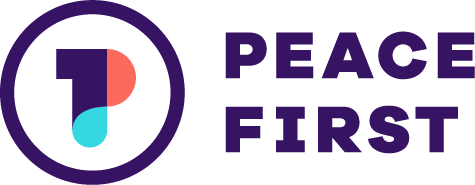Breaking the Cycle of Poverty: My Journey with FTF Ghana
Growing up in Ghana, I often saw children who, instead of going to school, were working or begging on the streets. Their futures seemed limited by the poverty they were born into. One child, Elizabeth Botchway, stood out to me in particular. Her story, like many others, was one of hardship, lost potential, and endless struggle. It was through Elizabeth’s experience that I realized the urgent need to create lasting change—not just for her, but for children like her everywhere.
In my first year of senior high school, I couldn’t shake the feeling that I needed to do more. That’s when I decided to found FTF Ghana in 2016, with a simple yet powerful mission: to break the cycle of poverty through education, mentorship, and holistic support. My goal was to provide children with the tools they needed to create a better future—tools that I knew were essential for empowering not just the individual child, but their communities as well. I have juggled high school and six years of law school while running FTF, and now that I’m a lawyer, I continue to balance FTF duties with my career.
I initiated my first community project, a tree planting and climate education campaign targeting schools in Kigoma. The goal was not only to mitigate the effects of deforestation but also to raise awareness among young people about the importance of environmental conservation. Together with local students and teachers from 12 schools, we planted 5,000 trees, creating shaded spaces for learning and a tangible symbol of hope for the future. This project sparked in me a belief in the power of youth-led action to drive real change while engaging more than 7,000 young students.
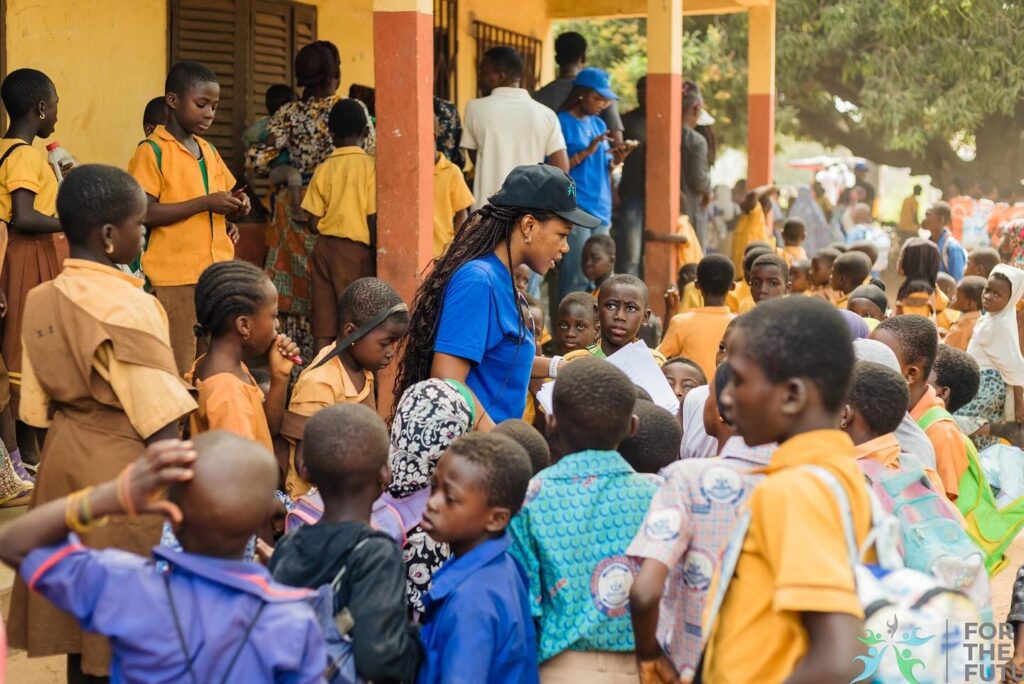
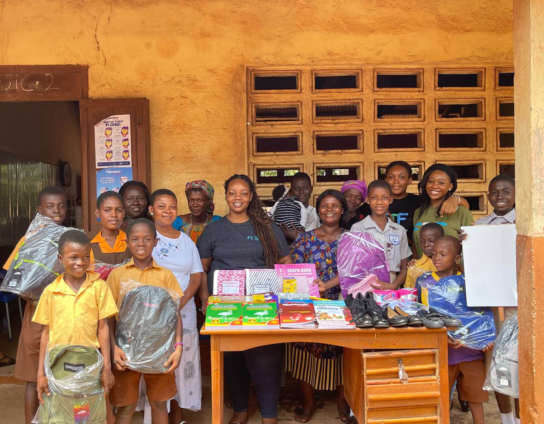
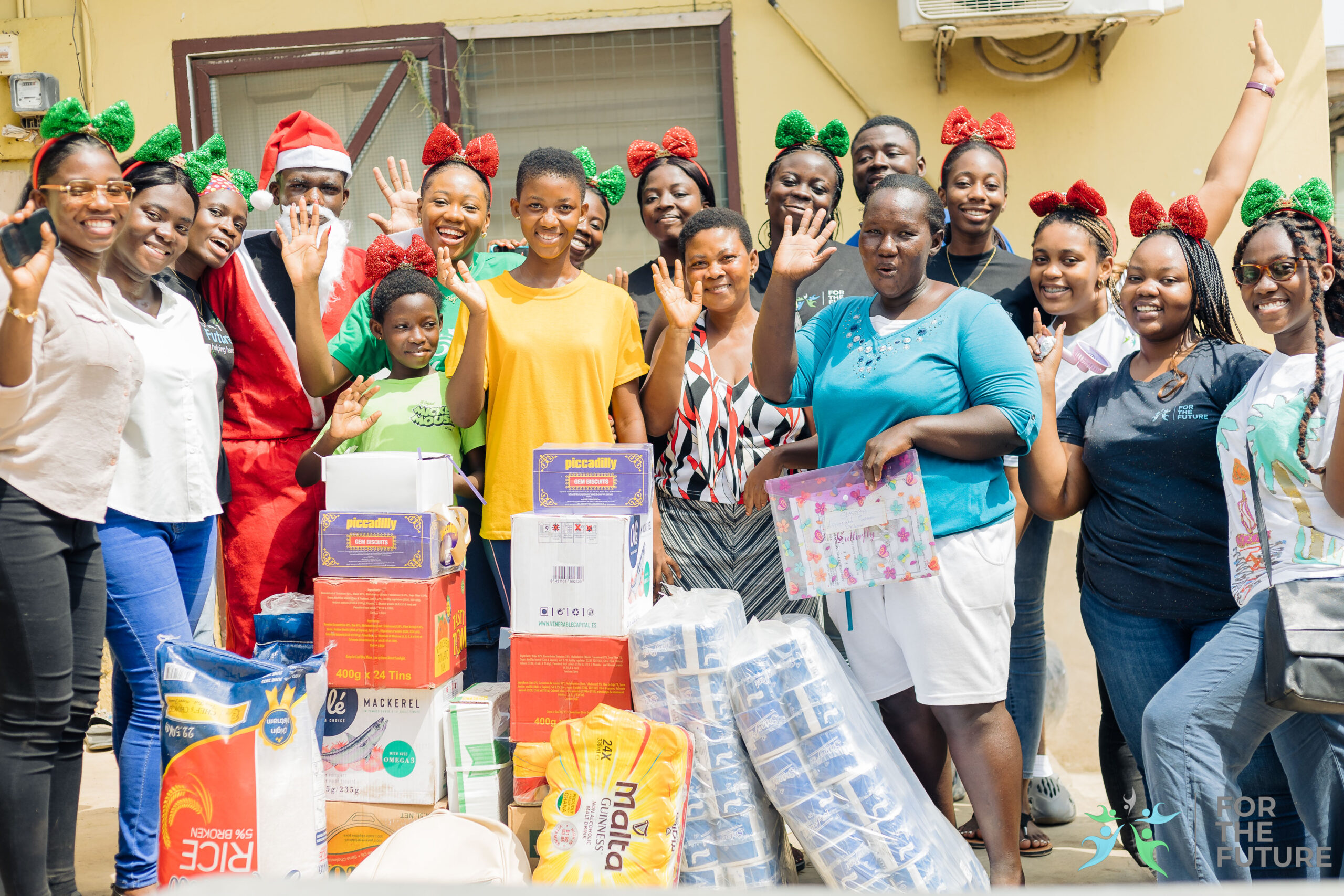
Since then, the impact of FTF Ghana has grown beyond my imagination. Over the last eight years, we’ve reached over 5,000 children through various programs, such as the Student Training and Educational Project (STEP). This initiative has helped children gain access to quality education, giving them the chance to build a brighter future. We also offer mentorship, ensuring these children receive the guidance they need to succeed both academically and personally. For example, our SmartStart Initiative has prepared 30 students for high school, helping them transition smoothly into the next phase of their education.
But education is just the beginning. In many communities, girls miss school because of period poverty—a challenge that often goes unnoticed. To tackle this, we launched the EmpowerHer Period initiative. By distributing over 27,000 sanitary pads to more than 800 girls, we’ve helped keep them in school and maintain their dignity. The simple act of providing sanitary pads can be life-changing, removing a barrier that affects many girls’ education.
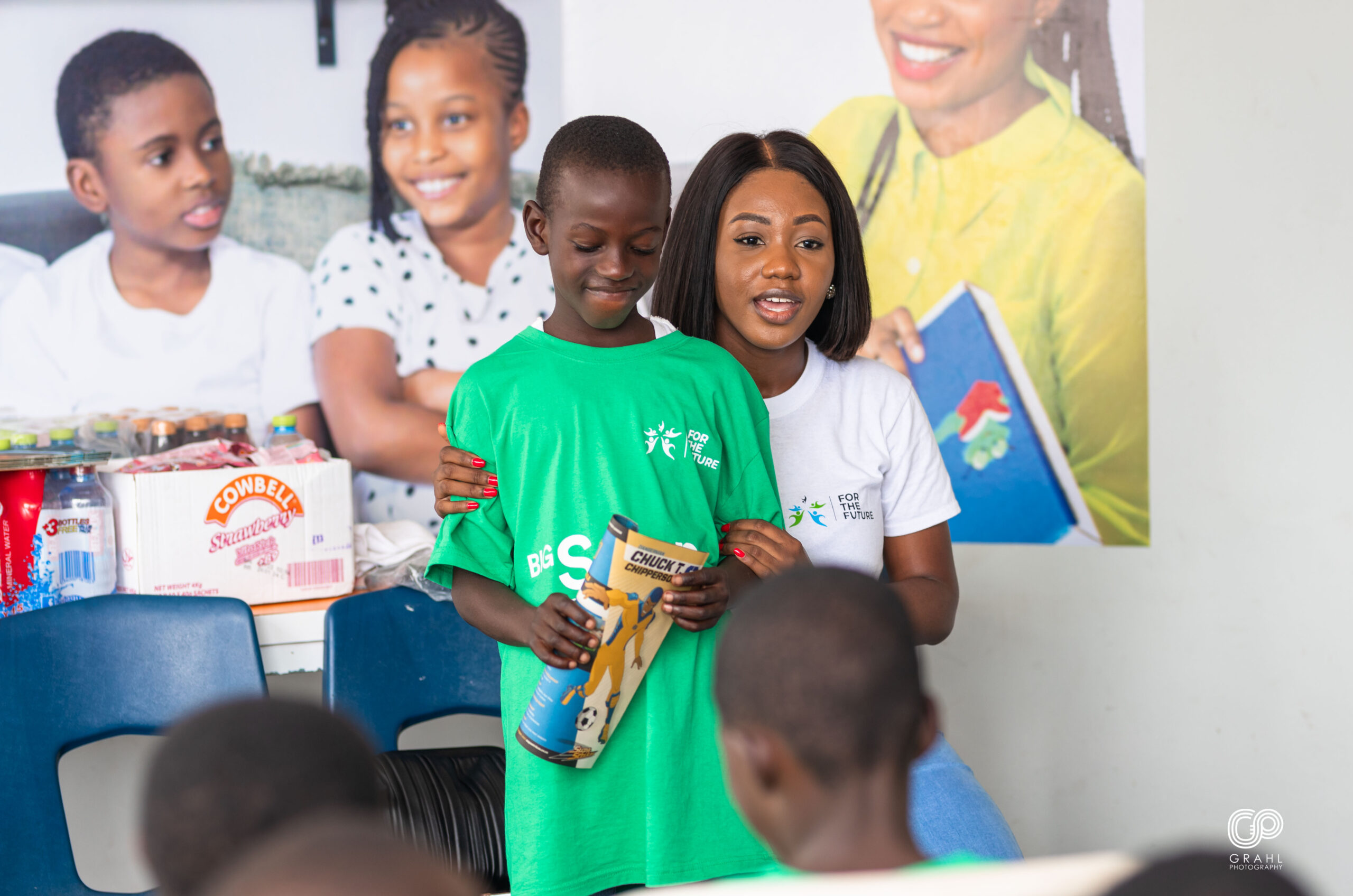
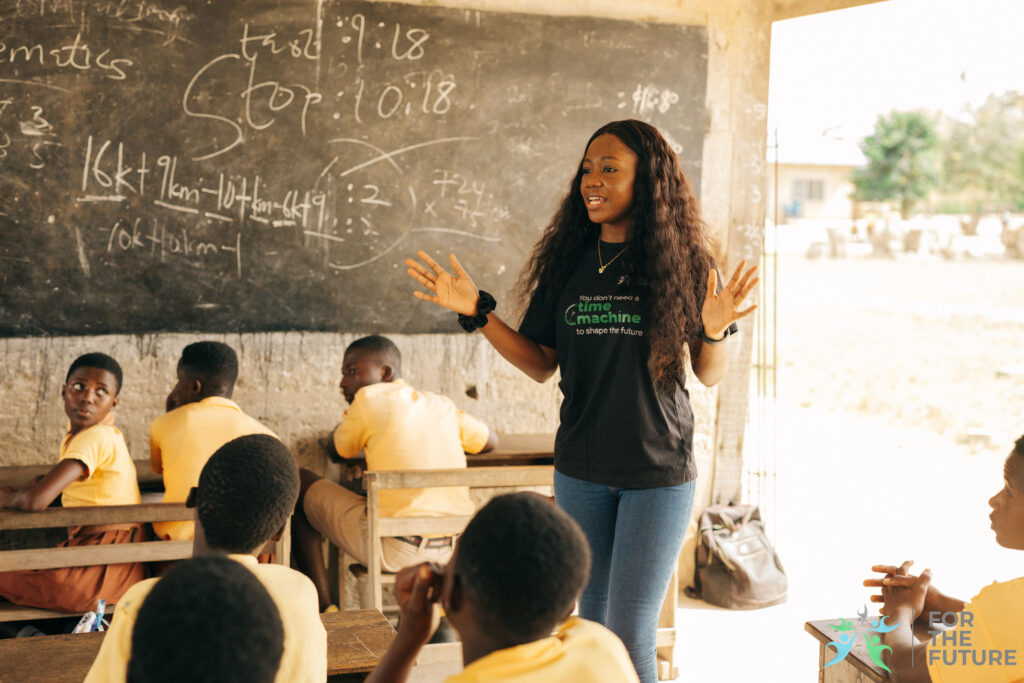
Through our partnerships with organizations like TrashyBags Africa and SchoolInABag, we’ve also worked to address environmental concerns while supporting education. So far, we’ve distributed eco-friendly school bags containing educational materials to 1,102 children in remote areas, offering them the resources they need to succeed while also promoting sustainability.
To bridge the digital divide, we launched Click4Change, a program designed to equip children with digital skills, public speaking abilities, and AI literacy. Through this initiative, 20 beneficiaries from underserved communities have received training, empowering them with the tools to thrive in an increasingly digital world.
Beyond these major initiatives, FTF is committed to creating joyful and enriching experiences for children. We organize celebratory events like Christmas parties, excursions to places like the Logos Hope floating book fair, and mentorship programs in partnership with organizations such as Asustem Robotics Academy, which introduces children to STEM education. These efforts expose children to new horizons and inspire a love for learning.
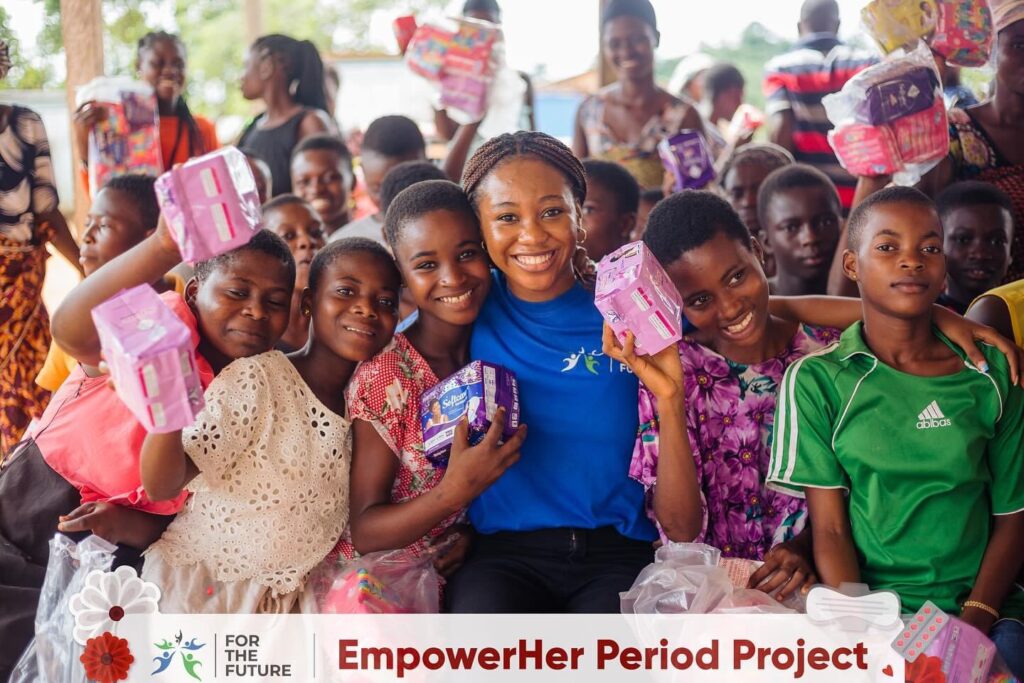
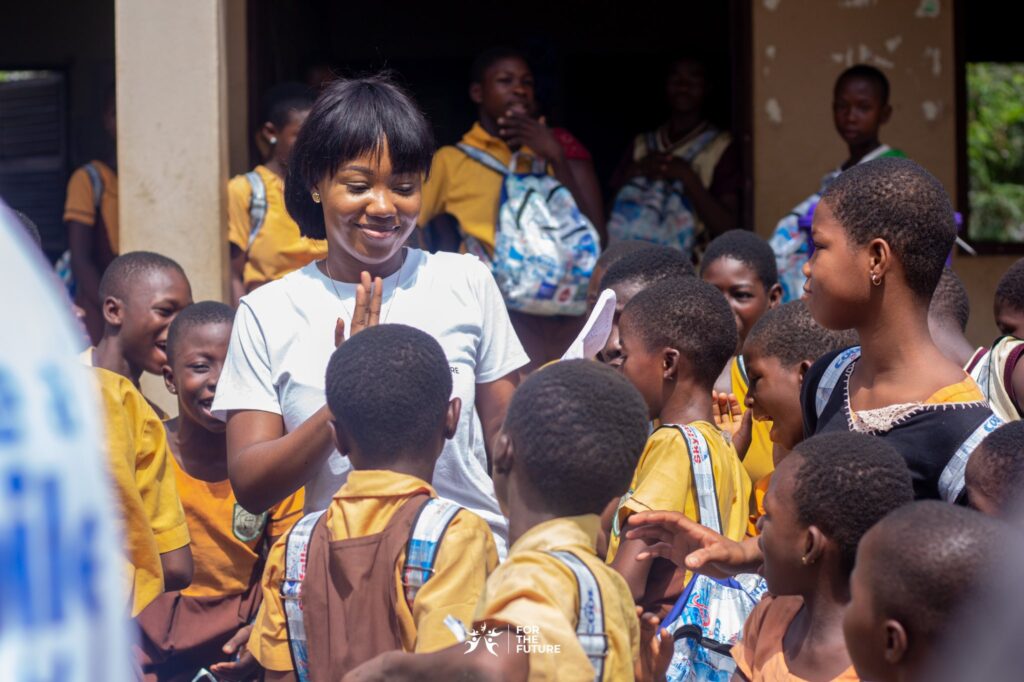
Looking ahead, I’m incredibly excited about the development of the FTF Village. We’ve secured eight acres of land to create an eco-friendly community that will offer education, vocational training, and healthcare. This project will not only provide a safe space for children but also a sustainable model that can be replicated in other communities globally. I believe that we can scale these solutions, using the FTF Village as a template for other regions facing similar challenges.
What motivates me every day is knowing that the work we do at FTF Ghana is changing lives. I see the transformation in the eyes of children who are now confident about their futures. I hear it in the words of parents who, for the first time, believe that their children have a chance at something better. And I know that none of this would be possible without the incredible support of our community, volunteers, and partners.
At FTF Ghana, we’re committed to turning challenges into opportunities and creating a world where every child has the chance to thrive. This mission is what drives me, and I believe it’s what will continue to fuel change for years to come.
